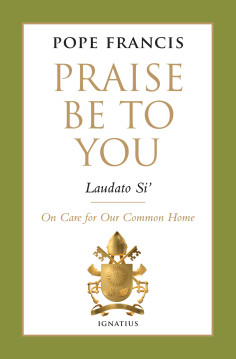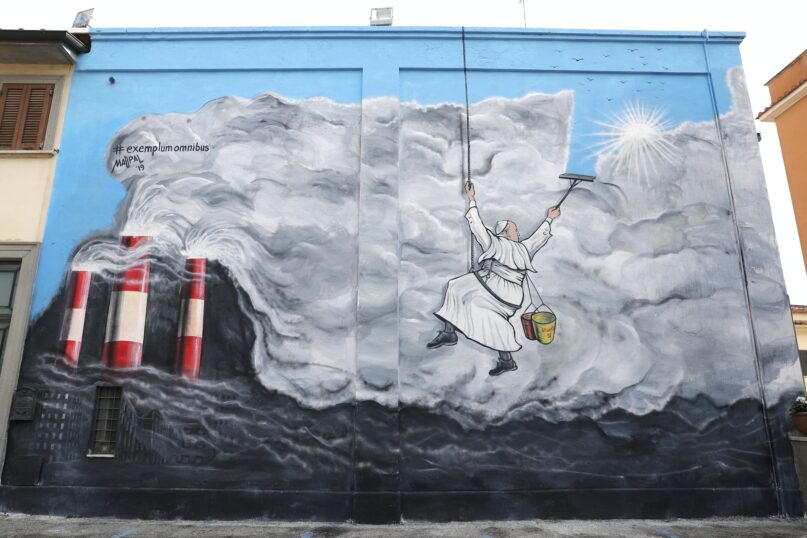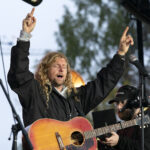(RNS) — With all that happened in the Catholic Church last month, we can be forgiven for missing the 10th anniversary of “Laudato si’,” Pope Francis’ encyclical on global warming.
Pope Francis fell ill and died on April 21. Then, the College of Cardinals gathered from all over the world, and after discussing issues facing the church and the world, they met in conclave and elected a new pope. And that conclave surprised all the pundits by choosing Robert Prevost, a Chicago-born Augustinian, within 24 hours. Our heads are still spinning.
But as we reflect on Francis’ legacy, “Laudato si’” is impossible to forget. Francis, who as a young man was trained as a scientist, accepted the dire warnings of climate science and called on the church and the world to protect future generations that will be devastated by the impacts of climate change on what he called “sister Earth.”
Francis put the Catholic Church on the side of the environmental movement by embracing science and our responsibility for global warming. In his encyclical, he presents the scientific consensus on climate change along with a description of other threats to the environment, including threats to water supplies and biodiversity. He also looks at how environmental degradation has affected human life and society.

Courtesy image
Climate change is already impacting weather patterns, as we are experiencing more severe storms. Coral reefs, the nurseries of the sea, are dying. Glaciers are disappearing. Temperatures and carbon dioxide levels keep breaking records.
Sadly, with all the other problems facing us, it is easy to put global warming on the back burner while the Earth continues to get hotter. The fossil fuel industry spends millions on disinformation campaigns to protect its profits by making us think climate change is not a serious problem. Too many people have been fooled into complacency. Politicians are either bought by the industry’s campaign contributions or fear going against a public that wants cheap gasoline. As a result, carbon dioxide levels continue to rise.
The Trump administration has declared war — not on global warming, but on attempts to deal with it. It has ordered that references to climate change be scrubbed from government websites. Funds for research and development of green technologies have been eliminated. Money to prepare communities for heat waves, storms and flooding has been cut. Even the National Weather Service has seen its staff decimated, as if shooting the messengers will eliminate bad news.
The cuts are impacting red districts more than blue districts, but President Donald Trump does not seem to care even when his supporters suffer. The administration’s response is depressing and frightening.
The Vatican, on the other hand, has just joined the handful of nations that are run entirely on green energy. Thanks to Francis, solar panels on Vatican-owned farmland are providing for all of the Vatican’s energy needs. This dual use of land, called agrivoltaics, is good for the planet and good for the Vatican’s bottom line.
The church’s concern about global warming cannot die with Pope Francis. The ball has been passed to Pope Leo XIV, who will carry on the battle to protect our planet and future generations. But he cannot do it alone.
I am normally a pessimist when it comes to global warming. Although nations are capable of mobilizing to wage wars, they do not appear willing to deal with problems that are beyond the next election. Original sin is just too powerful. But there are two places where I go for hope.
The first is EarthBeat, a project of the National Catholic Reporter, where readers can see how “Laudato si’” is being lived out in the church. There, you can read news not only on what Vatican officials are saying about the environment but also how dioceses, parishes and Catholic organizations are responding to global warming.
For example, last week, EarthBeat reported how 10 dioceses embraced “Laudato si‘.” These stories are inspirational because they show how ordinary people have been moved by Francis to take responsibility for planet Earth. They are practical because what is being done in these dioceses can be replicated elsewhere.
Another place I find hope is the podcast “Volts,” hosted by David Roberts, who has been reporting on and explaining clean-energy topics for almost 20 years. The podcast is unabashedly wonky as it reports on scientific and technological progress in clean-energy development. It is great at distinguishing what is hype from what is practical.
Roberts interviews researchers and entrepreneurs who are using science and technology to respond to global warming. The enthusiasm and dedication of these innovators are inspiring. It is encouraging to hear smart people attempting to expand clean-energy solutions like strengthening the electrical grid, building affordable and efficient batteries and adapting fracking technologies to develop geothermal energy.
Roberts’ political and economic analysis also reveals specific roadblocks to clean energy, including the impact of public utility commissions, which sadly are often captives of the very utilities they are supposed to regulate.
In “Laudato si’,” Pope Francis said sister Earth “cries out to us because of the harm we have inflicted on her by our irresponsible use and abuse of the goods with which God has endowed her.” Sadly, this is still true.

Pope Francis cleans the sky from pollution in graffiti by the artist Maupal, inspired by “Laudato Si’.” (AP Photo/Andrew Medichini)
But Francis believed that faith convictions can motivate Christians to care for nature and for the most vulnerable of their brothers and sisters. “Everything is related,” he wrote, “and we human beings are united as brothers and sisters on a wonderful pilgrimage, woven together by the love God has for each of his creatures and which also unites us in fond affection with brother sun, sister moon, brother river and mother Earth.”
“The church does not presume to settle scientific questions or to replace politics,” Francis acknowledged in his encyclical. “But I am concerned to encourage an honest and open debate so that particular interests or ideologies will not prejudice the common good.”
Today, we need that honest and open debate, as well as the help of our best minds in responding to global warming. But the political will is also needed if we are going to respond before it is too late.



